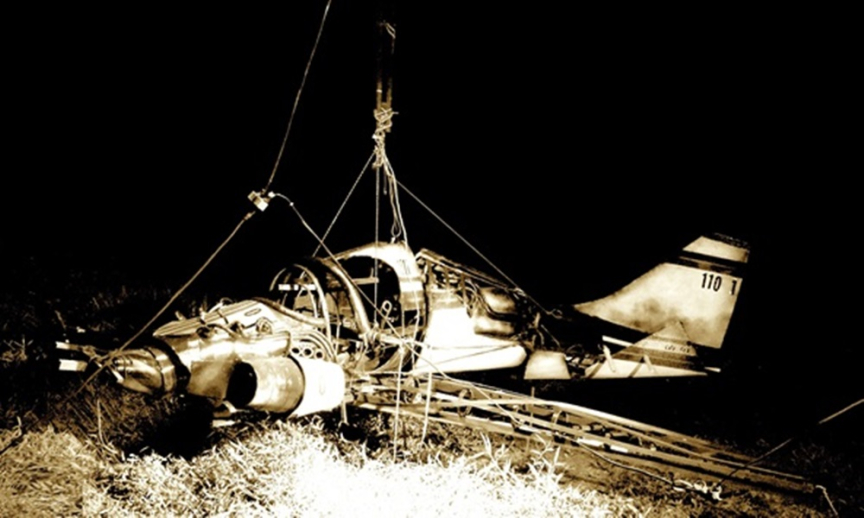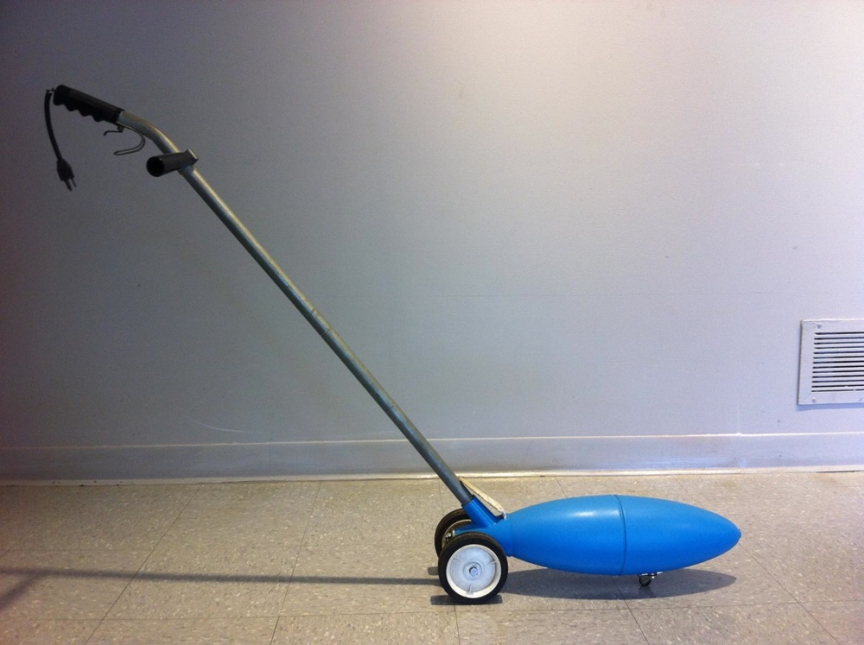Rutgers–Camden Center for the Arts to Host Roundtable Discussion with Currently Exhibiting Sculptors
The Rutgers–Camden Center for the Arts (RCCA) will host sculptors Scott Pellnat and Allen C. Topolski, who transform found objects and materials in magically illusory ways, for a roundtable discussion in the Black Box Theater on the Rutgers–Camden campus at 5 p.m. Thursday, Oct. 17.
Pellnat and Topolski have taken reclaimed materials and objects and transformed them into an array of stunning, original works of art, currently on display in an exhibit, “(re)collecting (re)constructing,” through Oct. 30 in the Stedman Gallery. The event will be held in conjunction with the 3rd Thursday Art Crawl in Camden.

Pellnat has elaborated a fantastical squadron of flying machines. Meanwhile, Topolski gives new life to domestic appliances, lending them anthropomorphic qualities, with a focus on technology and engineering. “Scott Pellnat’s installation and Allen Topolski’s domestic appliances intrigue the viewer, who might wonder what the original material or source could have been and what the function of the new object is, all the while recognizing the familiar aspects of these artworks,” says Cyril Reade, director of the Rutgers–Camden Center for the Arts. “The viewer is drawn into examining these objects through this recognition, attempting to decipher the illusions that these artists have insinuated in their creations.”
As Reade explains, the artists’ own words provide valuable insight into their working processes, which reveal that they are both troubled by, and disturb, the idea of the “new.” “The airplane, or rather the idea and romance of the airplane, functions within the culture as a zombie,” writes Pellnat. “Once the crowning achievement of a bustling new techno-economy and the undisputed master of the air, it is now a nostalgic reminder of a world where individual will sighed its last sigh and then there was Facebook…There were no drones then, there was no need. Unlike the drone, the airplane is an archaic form belonging to the past.”

For Topolski, the objects that he makes and collects tap the familiar. “They are constructed primarily of found materials or objects that are reworked and combined through a variety of transformative activities,” he writes. “They have associations that are sometimes transparent – a stool, a weight, wheels – that point directly to stasis, stability or mobility. Other associations are ephemeral and imbedded; they are often nearly consumed in the process of making but maintain vestiges of their former function. In striving to recognize an object, which seemingly has all the visual qualities of a real world object, viewers are forced to call up associative memories – to peruse mental inventories of the experiences that constitute their histories.”
According to Reade, who will moderate the discussion, there are marked differences in the two bodies of work, which act in the exhibition to bring out their respective qualities. Topolski’s objects are discrete and contained, reflecting their origin as domestic appliances, Reade says. “His objects emulate the vocabulary of traditional sculpture of object and pedestal, but confound this simple equation by interrogating the value of the origin of material and the role of craft.”
Reade adds that Pellnat’s installation appears to have no boundaries, seemingly seeking an infinite expansion, to take up as much space as possible, and then overflow. “Looking beyond the frame of the domestic, Pellnat models his work on another terrain of consumer culture, that of the airplane and the highway, where we bring more mobile expectations of comfort and utility,” says Reade. “Pellnat’s work engages with entropy, with destruction, with falling apart—also an antithesis of traditional sculpture that attempted to seize the permanent and eternal.”
The Black Box Theater is located in the Fine Arts Complex, on Third Street, between Cooper Street and the Benjamin Franklin Bridge on the Rutgers–Camden campus. For directions to Rutgers–Camden, please visit: camden.rutgers.edu/resources/getting-to-campus.
For further information regarding the gallery and the exhibit, please visit the Rutgers–Camden Center for the Arts website at rcca.camden.rutgers.edu.